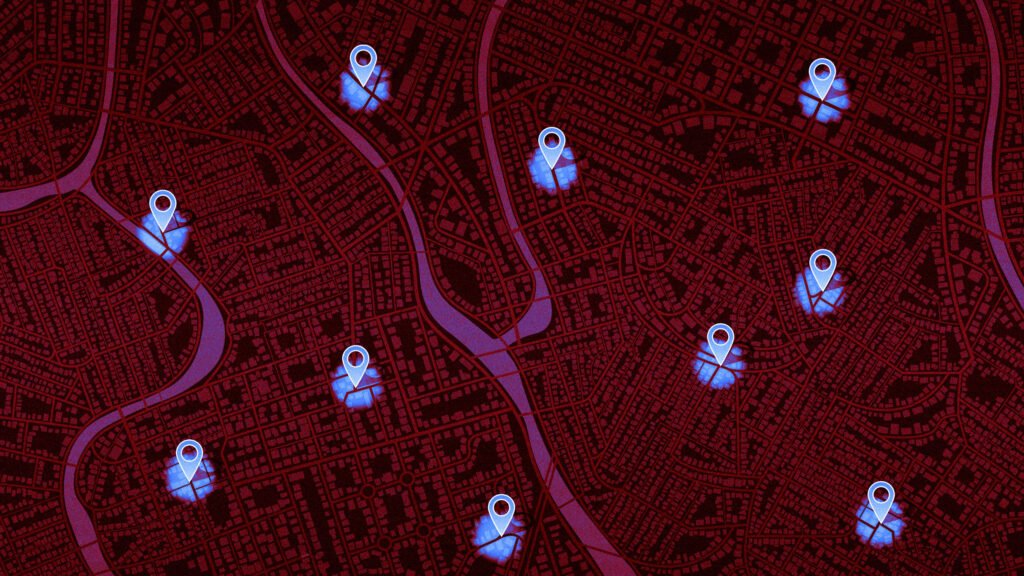By Sky York Journal
The recent decision by the U.S. government to slash funding for programs that support internet freedom and promote democracy in authoritarian regimes—especially Iran—has sparked widespread concern among activists, human rights organizations, and digital freedom advocates.
1. Background on the Cuts
In a sweeping austerity move, the U.S. Office of Management and Budget (OMB) has recommended an 80% reduction in the budget of the State Department’s Bureau of Democracy, Human Rights, and Labor (DRL). According to The Guardian, this move would effectively terminate nearly all global democracy-promotion programs, sparing only minimal efforts in China and Yemen. The implications for Iran—where digital repression and human rights violations are rampant—are particularly severe.
(The Guardian)
2. Iran: One of the Most Affected
According to reports from the Washington Post and other sources, multiple U.S.-backed initiatives—such as the Near East Regional Democracy Program (NERD)—are scaling back or shutting down entirely. This impacts local civil society actors, media outlets broadcasting in Persian, and tech platforms offering secure communication tools to Iranians.
3. Defunding the Open Technology Fund
One of the most critical blows is the withdrawal of funding for the Open Technology Fund (OTF)—a nonprofit that has enabled over 18 million Iranians to access censored information using VPNs and encryption tools. The OTF supported anti-censorship tools like Psiphon, Signal, and Tor, which are now at risk of disappearing from the digital landscape in Iran.
(Washington Post)
4. “A Gift to the Ayatollahs”
Critics argue that the cuts serve authoritarian regimes. “This is essentially a gift to the ayatollahs,” said Jason Brodsky, policy director at United Against Nuclear Iran. “It dismantles the most effective tools Iranian civil society has to stay connected and resist surveillance.”
(Iran International)
5. Digital Repression in Iran: A Growing Crisis
According to Freedom House, Iran ranks among the world’s most repressive digital environments. Authorities regularly:
-
Shut down the internet during protests
-
Block VPNs and encrypted apps
-
Increase surveillance of dissidents
-
Criminalize online expression
(Freedom House Report on Iran)
These cuts come at a time when Iranian activists are already under immense pressure and depend on foreign tech tools for communication and mobilization.
6. Implications of the Cuts
-
Shrinking Civil Space: Iranian NGOs and independent media risk collapse without support.
-
Loss of Digital Rights Tools: Without VPNs, millions will lose access to free information.
-
Strategic Backfire: The U.S. risks losing its soft power influence in authoritarian regions like Iran, while China and Russia expand their reach.
📌 Final Thoughts
The decision to scale back democracy assistance and tech access for people under authoritarian regimes—especially in Iran—marks a dangerous shift in U.S. foreign policy priorities. It threatens to silence dissent, embolden autocrats, and disconnect millions from the global conversation.
At Sky York Journal, we believe the world must not turn its back on the fight for freedom and open internet access. As activists have warned, these cuts don’t just reduce spending—they raise the cost of silence.
Sources:
-
The Guardian (26 June 2025): US to end global democracy programs
-
The Washington Post (7 March 2025): Foreign aid cuts threaten access in Iran
-
The Washington Post (20 March 2025): Funding ends for OTF
-
Freedom House Report (2024): Iran – Freedom on the Net
-
Iran International (2025): Critics respond to U.S. aid cuts


